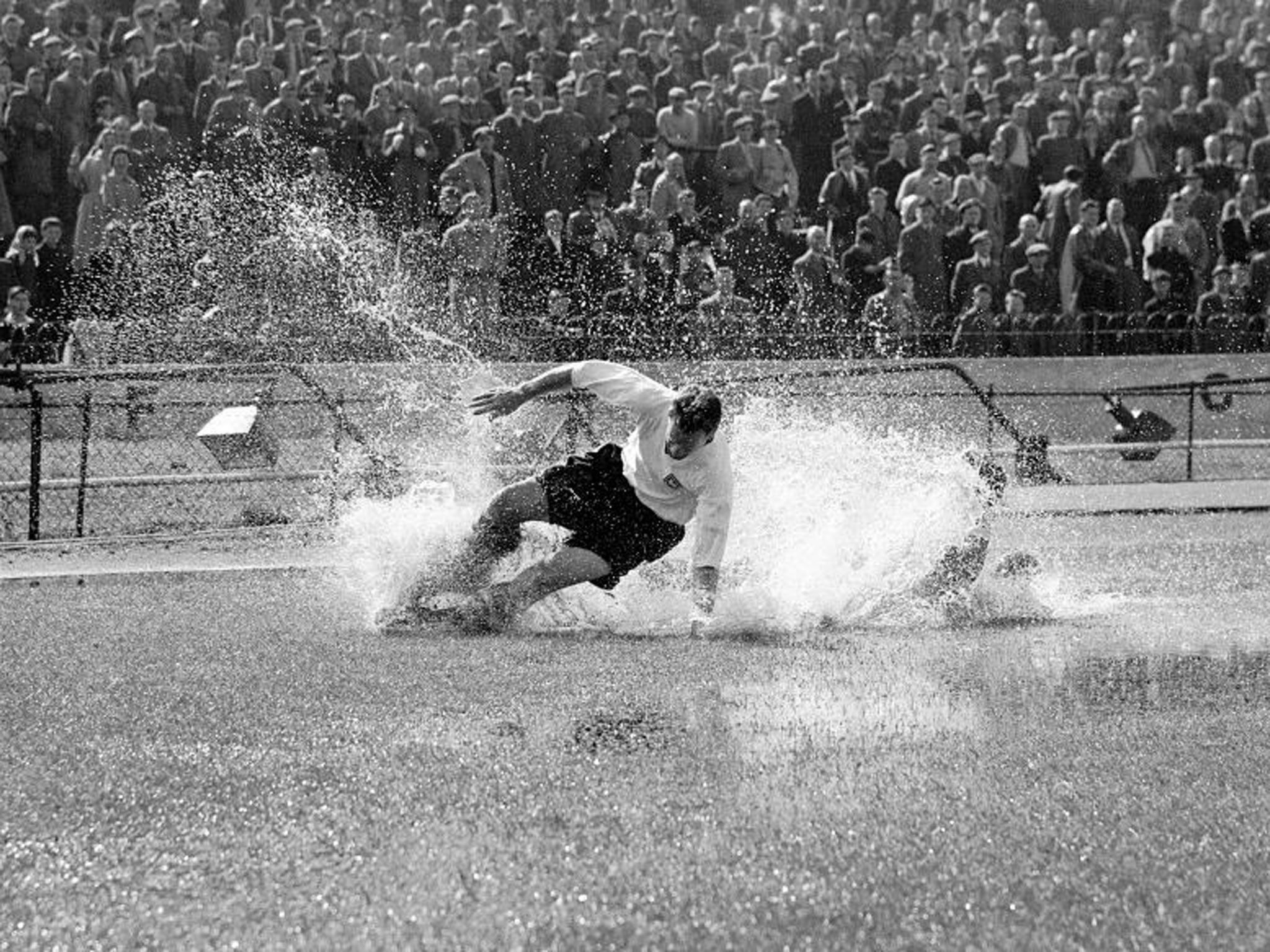Farewell Sir Tom Finney, a man valued for deed not greed
The late Sir Tom Finney displayed humility, loyalty, vivacity and dignity, virtues lost to a modern game in danger of becoming an elitist, homogenised, globalised afterthought

Some men transcend their time and their trade. They are voices from another age which have an instructive resonance. When they pass on we are all impoverished because they leave a sense of loss and a longing for simplicity.
The death of Sir Tom Finney, announced late on Friday night, was one of those seminal moments which tell us more about ourselves than is comfortable. The qualities he represented – humility, loyalty, vivacity and dignity – are gone from the game he graced.
Football as he knew it in the era of the maximum wage was a harsh and imperfect world. He was part of Preston North End's goods and chattels. Yet he understood his role, accepted his responsibilities. He was a man of the people before such a status carried commercial considerations.
Finney earned £14 a week in his pomp and walked to matches with his boots in a paper bag. He obeyed his father and completed his apprenticeship as a plumber. His perspective was acquired bitterly in Montgomery's Eighth Army, fighting in North African deserts and in the liberation of Italy.
In his dotage he turned Deepdale into a place of pilgrimage. To meet him was a privilege, because he did not tire of telling the same stories to strangers, year after year. He was relentlessly modest, quietly spoken and engagingly proud of his town and his team.
He was no museum piece. The light in his eyes when he spoke of such kindred spirits as Ryan Giggs and Cristiano Ronaldo was uniquely illuminating. The memories he generated, even for those of us who had seen him play only in newsreels and sepia-tinged film clips, acted as an admonishment to the multi-millionaires who profited from his legacy.
Unlike most modern stars, he was a genuinely two-footed player. He moved from the right wing to the left to accommodate another legend, Sir Stanley Matthews. He played as a centre forward when required, and scored 187 goals in 433 League appearances for Preston, his only club. He was twice Footballer of the Year, but won only one medal, for winning the Second Division in 1951.
Finney was living history, part of the game's bloodline. He valued the purity of what was once a fundamental sporting principle, mutual respect. The day of his death, aged 91, provided a typically ugly snapshot of what football has become, an industry in thrall to greed, aggression and crude expedience.
Jose Mourinho casually disparaged Arsène Wenger in a classless act which played to the gallery. The Kick It Out organisation reported a disturbing increase in racism and homophobia on social media. Richard Scudamore, the former advertising executive who has transformed the Premier League into a billionaire boys club, lectured the Government about social policy.
Birmingham City became the latest club to challenge freedom of expression, banning banners with "confrontational messages" in an attempted to avert protests. It became clear that agents have taken to approaching promising schoolboy players on Twitter. One even used an international as bait.
And then Fulham, a club which was once a byword for decency, sacked yet another manager, Rene Meuensteen, after 75 days in charge. The Dutchman, whose last three managerial appointments have spanned a total of 39 matches, is a symbol of a throwaway society. He was airbrushed out of history at Craven Cottage, not even deemed worthy of mention in the statement announcing the arrival of Felix Magath.
The Premier League's first German manager, a man of cartoon ferocity and consistent eccentricity, has the improbable task of imposing order on utter chaos. It was another extraordinary decision made by a foreign owner, in this case Pakistan-born, US-based billionaire Shahid Khan, who has no conception of an English football club's cultural identity.
Finney served a community. He was born on a street adjoining Deepdale and fixed the leaking taps of those who paid to watch him play. Manchester United, by contrast, have been reduced to claiming "a global community of 659 million followers", though the mathematics involved in reaching such a figure are conveniently obtuse.
A quarter of the population of Thailand, 30 per cent of Vietnamese and South Korean citizens, and 108 million Chinese are so-called "Claimed Reds". According to the corporate prospectus, this "provides Manchester United with a worldwide platform to generate significant revenue from multiple sources, including sponsorship, merchandising, product licensing, new media & mobile, broadcasting and matchday."
The club of Best, Law and Charlton may be embarrassingly adrift in the Premier League table, but their executives proudly informed American investment bankers in a midweek conference call to Wall Street that they were top of Facebook's PTA table. That's People Talking About, if, like me, you are so resolutely unhip as to require enlightenment.
People will talk about Tom Finney long after football has eaten itself and been repackaged as an elitist, homogenised, globalised afterthought. It took the authorities 38 years to grant him a knighthood, but he didn't need a sword on his shoulder to be assured of immortality. Fittingly, every Preston player wore his name on their back yesterday.
Thank you, Sir Tom. You were loved, and will be missed.
Join our commenting forum
Join thought-provoking conversations, follow other Independent readers and see their replies
Comments
Bookmark popover
Removed from bookmarks